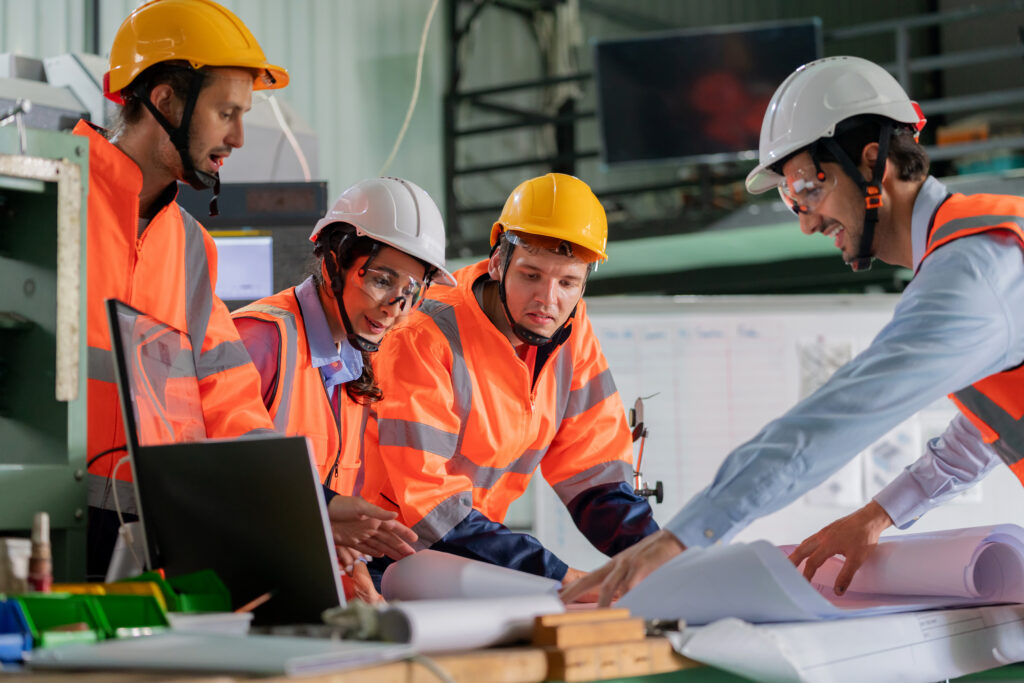Why Trade Supervisor Meetings Are Key to Repair Success (and How Data Can Make Them Better)
Engaging and focused trade supervisor meetings in social housing play a crucial role in ensuring repair jobs are completed efficiently and to a high standard. These meetings provide a structured platform for discussing ongoing repairs, addressing challenges, and optimising workflows. With the rising pressures to meet Tenant Satisfaction Measures and stricter compliance due to the incoming Awaab’s Law, effective trade supervisor meetings are more important than ever.
By leveraging these meetings effectively, social housing providers can improve communication between operatives, supervisors, and management, leading to better repair outcomes and enhanced tenant satisfaction.
How Data Can Improve Housing Repairs Performance
Using data to enhance housing repairs is a game-changer for social landlords. Traditional approaches to repairs management often rely on reactive processes, where issues are addressed only after they become serious problems. However, modern technology solutions like Mobysoft’s RepairSense platform enable a proactive approach by analysing repairs data, identifying trends, and flagging potential repeat repair issues before they escalate.
By integrating data-driven insights into trade supervisor meetings, social housing providers can:
- Identify common repair issues and their root causes
- Prioritise urgent repairs to reduce tenant dissatisfaction
- Improve resource allocation by optimising workforce deployment
- Minimise repeat repairs, reducing costs and improving efficiency

Key Strategies for Optimising Trade Supervisor Meetings
1. Encourage Open Communication and Feedback
Trade supervisors are at the frontline of social housing repairs management, overseeing operatives like plumbers, joiners, and gas engineers. For these meetings to be effective, they must foster a culture of open communication. Encouraging trade operatives to share their on-the-ground experiences helps supervisors understand challenges and address them promptly.
Additionally, creating structured feedback loops ensures that trade colleagues’ insights are used to refine repairs processes and improve efficiency.
2. Leverage AI and Data in Housing Repairs
AI and data in housing repairs provide powerful tools to enhance decision-making in trade supervisor meetings. Platforms like RepairSense use artificial intelligence to identify repeat repairs, allowing supervisors to intervene and prevent unnecessary callouts. By analysing historical data, housing providers can anticipate issues before they arise and proactively resolve them.
For instance, RepairSense flags high-severity repeaters – repair issues that have occurred multiple times at the same property within 12 months. Trade supervisors can then use this insight to ensure the right fix is implemented the first time, reducing costs and improving tenant satisfaction.
3. Implement Change Management for Continuous Improvement
Optimising trade supervisor meetings requires more than just reviewing repair logs; it involves a strategic approach to change management. Housing providers should:
- Clearly define repair goals and performance expectations
- Provide ongoing training on data-driven decision-making
- Encourage accountability by tracking repair outcomes
- Regularly assess the impact of changes and refine strategies accordingly
By embedding change management principles into trade supervisor meetings, social landlords can foster a culture of continuous improvement, ensuring that repair services evolve to meet tenant needs effectively.
4. Use Data to Reduce Repair Costs in Social Housing
Reducing repair costs in social housing is a priority, especially with annual repairs expenditure projected to reach £10bn in the next five years. One of the most significant cost drivers is repeat repairs – when the same issue occurs repeatedly at the same property due to ineffective fixes.
Trade supervisor meetings should incorporate data analysis to identify patterns of recurring repairs. By using insights from RepairSense, supervisors can:
- Assign the right operatives with the necessary skills for specific repair jobs
- Ensure operatives have the correct materials and tools to complete jobs effectively
- Monitor and refine contractor performance to maintain high repair standards
5. Enhance Tenant Communication and Satisfaction
Effective trade supervisor meetings also help improve tenant communication, ensuring that residents are kept informed about repair progress. Data-driven insights from repairs platforms can provide supervisors with real-time updates on job statuses, enabling them to manage tenant expectations better.
By reducing repeat repairs and improving the quality of fixes, housing providers can enhance tenant satisfaction scores and reduce complaints related to unresolved maintenance issues.

The Future of Social Housing Repairs Management
The role of trade supervisors in housing repairs is evolving, and embracing data-driven decision-making is no longer optional. As repair costs continue to rise and regulatory pressures increase, housing providers must leverage AI and predictive analytics to drive efficiencies in repairs management.
Optimising trade supervisor meetings with data enables social landlords to:
- Improve first-time fix rates
- Reduce operational costs
- Increase tenant satisfaction and regulatory compliance
By integrating RepairSense into their repairs processes, housing providers can ensure a proactive, efficient, and sustainable approach to social housing repairs management.
To find out more about how RepairSense can help your organisation use data to drive efficiencies within its repair and maintenance operations and manage resources more effectively, watch our short RepairSense overview video.